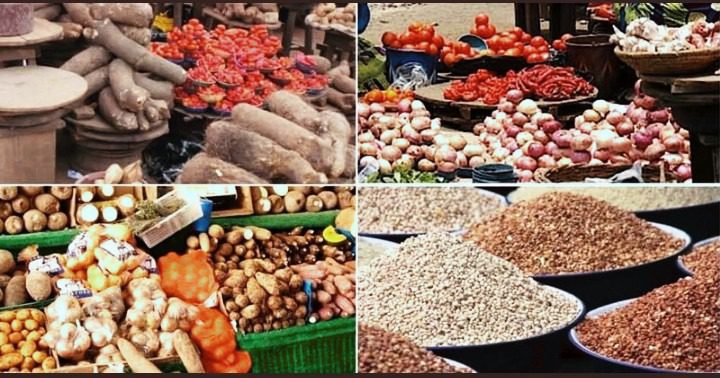Global Issues
Food Security In Amidst Of Coronavirus (COVID-19) -By Ibrahim Muhammad Abdul
COVID-19’s impacts on food supply and demand will, directly and indirectly, affect all four dimensions of food security; Availability, Access, utilization, and stability. It is also expected that there will be immediate effects resulting from the containment measures adopted in several countries, and these measures will also have longer-term effects affecting the full global economy.

INTRODUCTION
Food security exists when all people, at all times, have physical and economic access to sufficient safe and nutritious food that meets their dietary needs and food preferences for active and healthy life (FAO 1996). COVID-19 has both direct and indirect impacts on food security, and the final outcomes are dependent on the baseline situation of communities, countries, and regions, as well as on their resilience to shocks. In return, the worsening of the food security situation can also have negative impacts on the progression of the pandemic by weakening immune systems. In any scenario, the most affected will be the poorest and most vulnerable segments of the population (including the displaced). The poorest and most vulnerable populations have fewer resources to cope with the loss of jobs and incomes, the increase of food prices and the instability of food availability, and therefore have less ability to adapt to the crisis. The first cases of COVID-19 were reported in November 2019 in the Chinese province of Hubei.
IMPACT OF COVID-19 ON FOOD SUPPLY AND DEMAND
COVID-19’s impacts on food supply and demand will, directly and indirectly, affect all four dimensions of food security; Availability, Access, utilization, and stability. It is also expected that there will be immediate effects resulting from the containment measures adopted in several countries, and these measures will also have longer-term effects affecting the full global economy.
IMPACT ON FOOD SECURITY
As caseloads of COVID-19 increase in countries around the world, there are likely to be disruptions to agro-food supply chains. Although there may have been plenty of food within the supply chains at the start of the crisis, disruptions to food supplies have tracked outbreaks due to a rise in panic buying by people concerned about food supplies during potential lockdowns. If outbreaks around the world are severe or continue over long periods of time, there are likely to be even more serious disruptions that may reduce food availability in the markets over the medium and longer terms. These disruptions may occur as a result of producers themselves becoming ill or because of disruptions to markets due to policies to contain the virus. Declining demand due to a decline in purchasing power will in turn affect the ability and willingness of farmers and producers to invest and adopt adequate technology and will further shrink food production and availability.
IMPACT ON FOOD DEMAND
Starting with the containment and social distancing policies, the pandemic creates first a spike in demand, due to panic buying and hoarding of food by marketers, which will increase food demand in the short term. However, this spike in purchases can be followed by a declining trend in demand, both in terms of physical ability to purchase food and in terms of loss of income and purchasing power linked to the loss of jobs and the freezing of economic sectors. Changes in short-term preferences due to perception in food safety or convenience can become long-term changes, with repercussions on food systems, livelihoods of food producers, and dietary diversity.
POLICY RESPONSES FOR FOOD SECURITY
Different causal factors imply differentiated policy responses. If food insecurity is a result of disrupted food systems, then restoring access to food is the most appropriate response. There is a range of policy instruments for achieving this imperative, Food-based (food transfers, food for work) such as palliative foods for vulnerable people introduce by most of the government of developed and developing countries including Nigeria.
Cash-based (cash transfers, cash for work) – cash transfer for assisting the livelihoods of rural poor and vulnerable peoples e.g In Nigeria, the Ministry of Humanitarian Affairs, Disaster Management, and social development has provided such support to reduce the menace of the Corona pandemic.
Market-based (open market operations, food price subsidies).
Price control based( price flow and price ceiling).
Others are mechanisms by which households or community members meet their relief and recovery needs, and adjust to future disaster-related risks termed as ‘Coping strategies’.
Change in consumption patterns
Sale of assets such as livestock to food grain purchase from the local market
Borrowing grains from other farmers;
Support from relatives, neighbours, and friends.
The intention is to stimulate either food supplies, effective demand for food, or both, in contexts where either or both of these factors has collapsed to below subsistence levels.
CONCLUSION and RECOMMENDATION
The present crisis highlights existing challenges in food systems. In the midst of such pandemic Covid-19, food security is, directly and indirectly, affected most especially on the demand side, which implies that interventions focused on demand factors need to get priority attention in order to tackle transitory food insecurity.
Ibrahim Muhammad Abdul, APMPI & Musa Kamilu
Email:Ibrahimmuhammadabdul8@gmail.com
OUTREACH DEPARTMENT
NIGERIAN STORED PRODUCTS RESEARCH INSTITUTE, KANO










